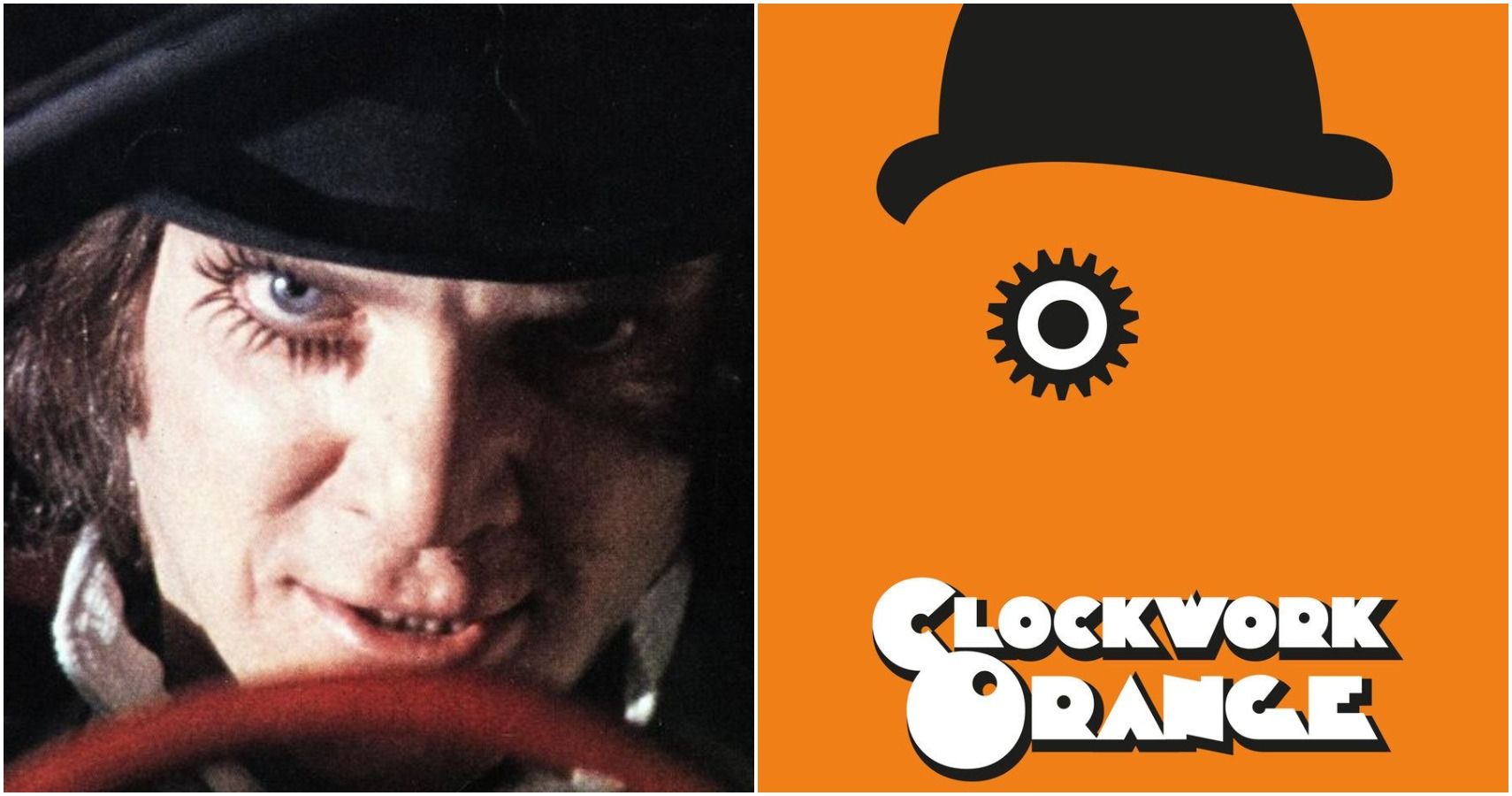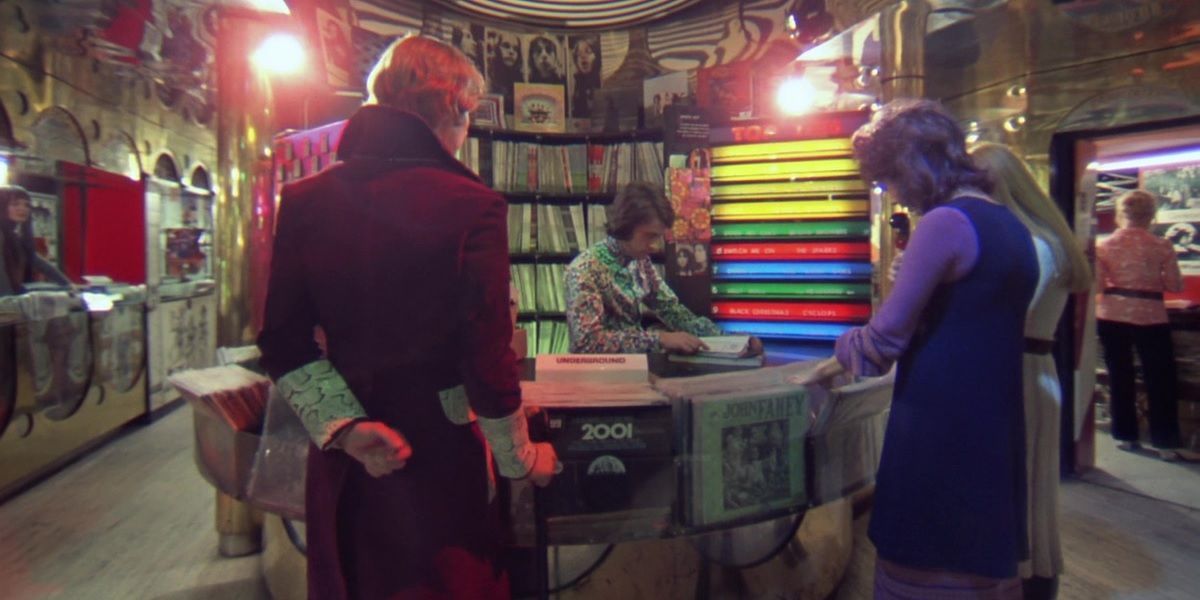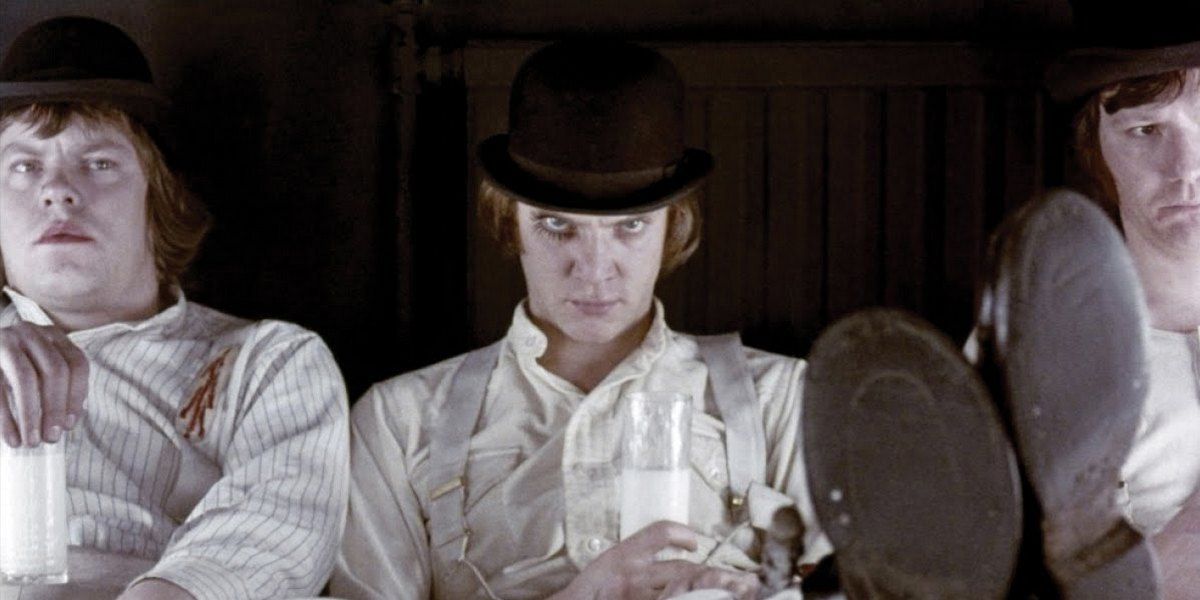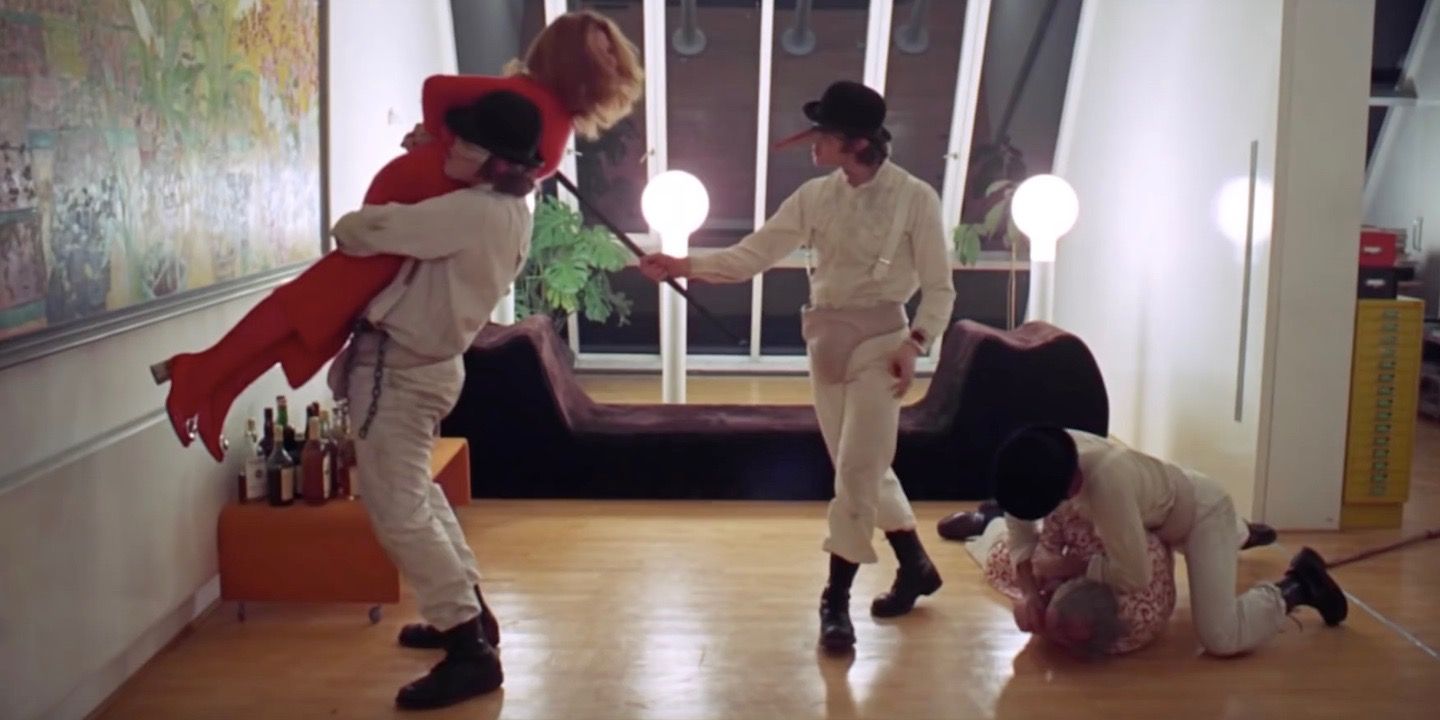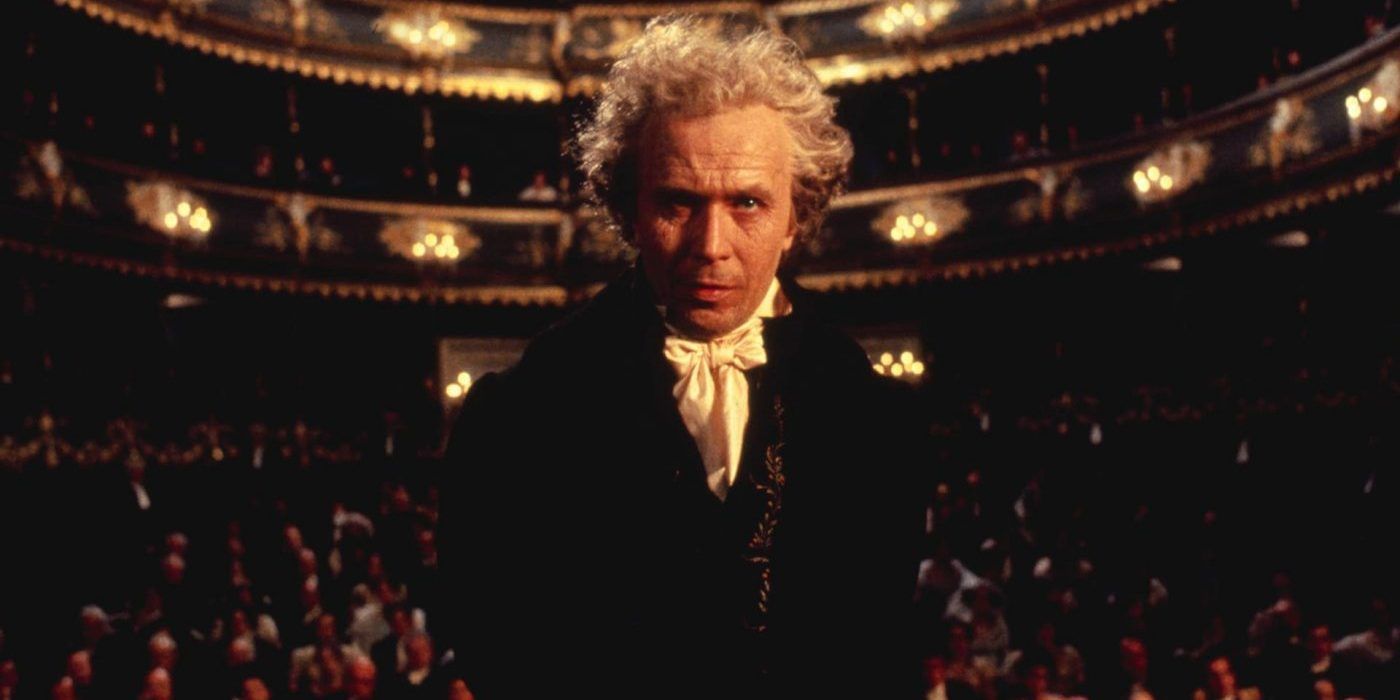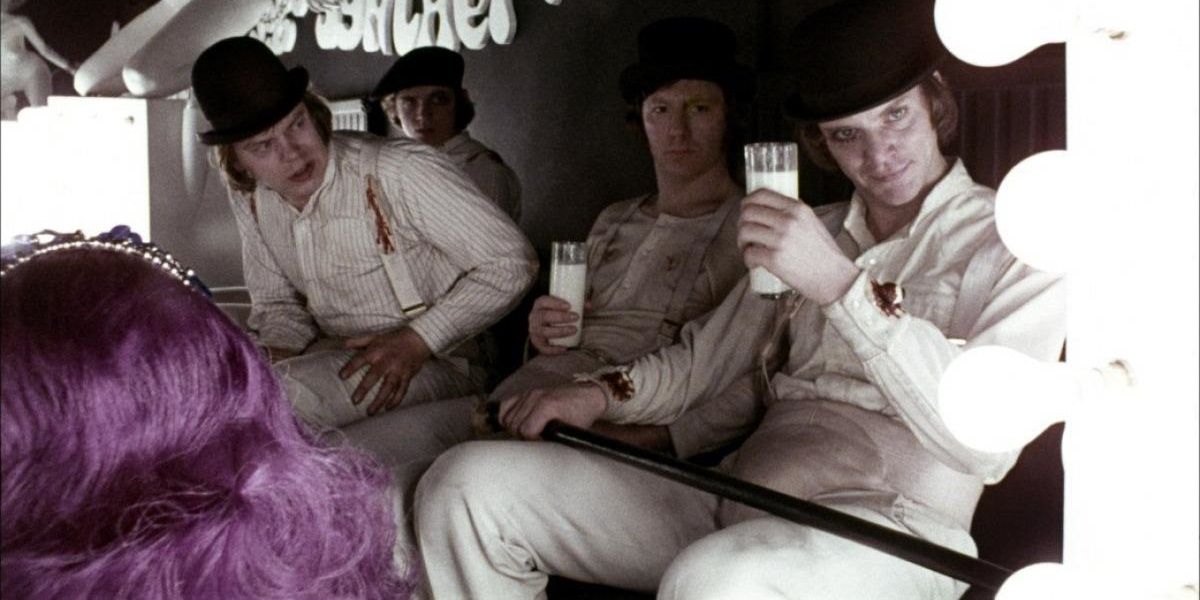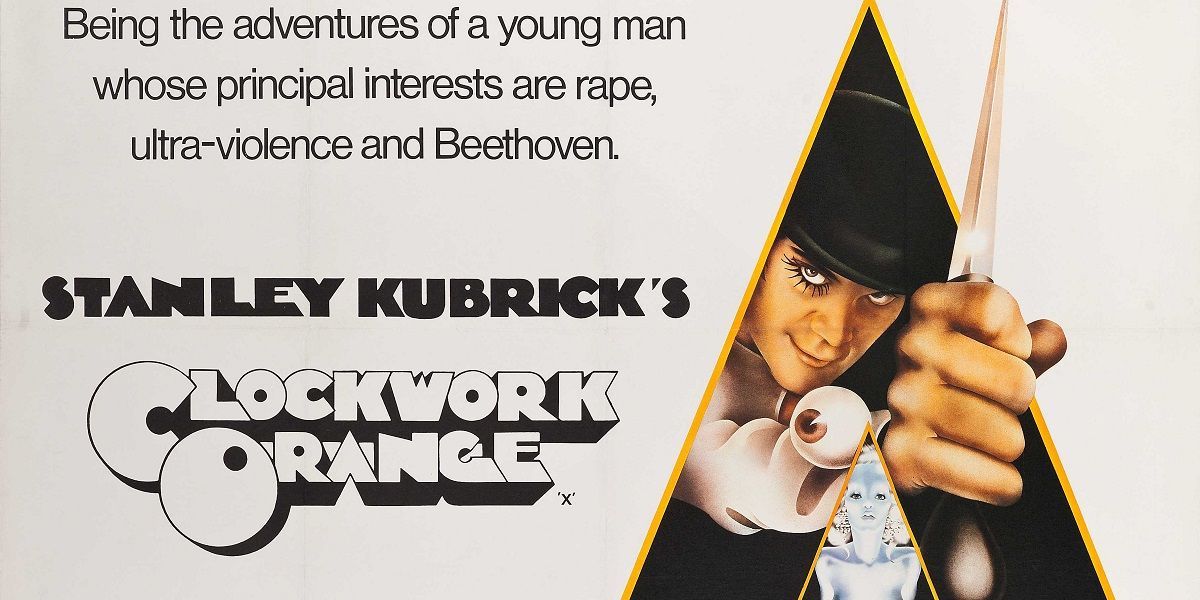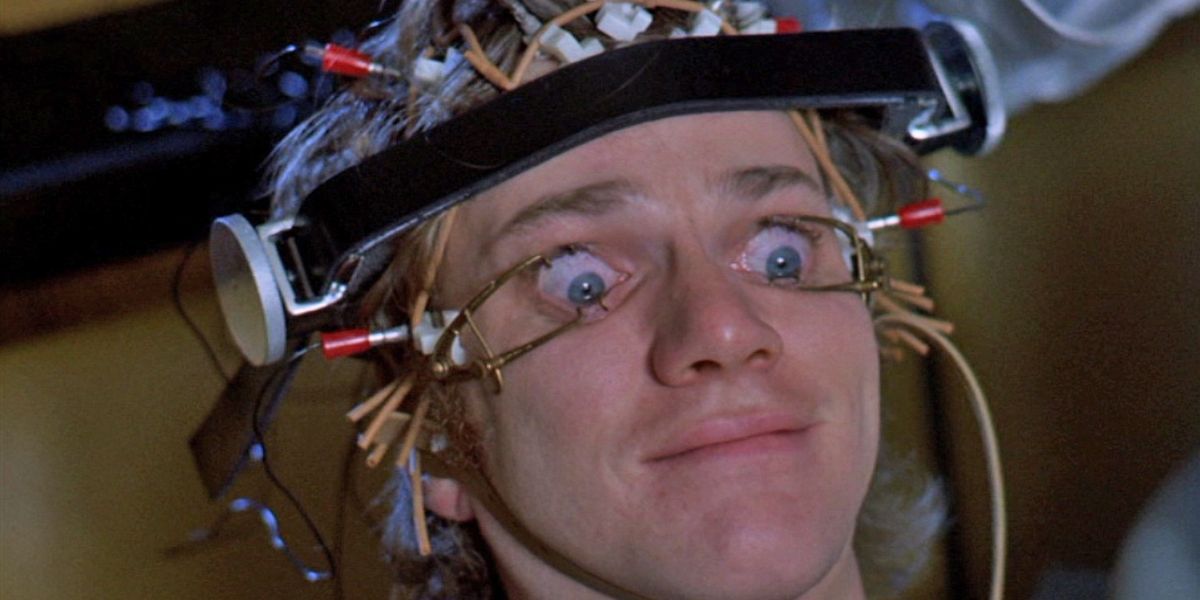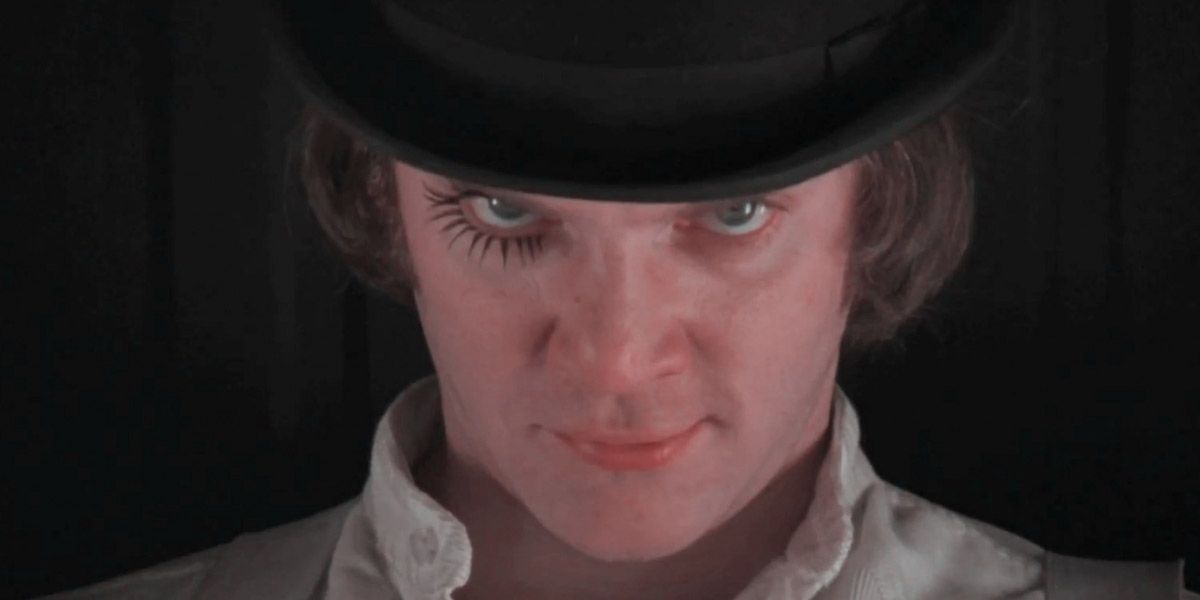The Stanley Kubrick adaptation of Anthony Burgess’ 1962 novel is often considered one of the most graphically violent, needlessly brutal and incredibly over-the-top films of all time. It depicts everything from intentionally unnecessary violence to rape and torture.
There are a lot of similarities in that regard between the film and the book that inspired it. However, there are a few major differences that all the two works to keep a bit of contrast. We’ve collected ten of those.
10 Year Old Girls
The first, and arguably most alarming, thing that exists in the book that was taken away for the film is the ages of the Droog’s victims. When Billyboy’s gang commits a rape early on in the film, she is a young woman; in the book, she is just ten years old.
Similarly, the two teenagers we see Alex talking to in the record shop and taking home are also just ten years old in the book. Now, in the film, this seems to be a consensual situation (though they do still appear to be underage), but in the book, this is just another horrific rape. The director likely thought this was too far, even for this film.
Pete’s Demise
Alex’s Droogs Dim, Georgie and Pete are all pretty stupid. They basically enjoy inflicting pain, fear and suffering and not a lot else. They aren’t exactly likable characters that we want to see succeed in life. The books provide a very small bit of justice when we find out that Georgie died in a failed robbery.
However, Georgie doesn’t die at all in the film. When Alex is released from prison, it is Pete who seems to be missing from the gang, even though his lack of presence is never referenced.
Alex’s Recognition
A major twist in the plot of A Clockwork Orange comes after Alex’s rehabilitation. He ends up back at the house of a man called F. Alexander, who was the recipient of a violent attack from Alex and his Droogs.
At first, he doesn’t recognize Alex at all, but in the film, he gives himself away by singing ‘Singing In The Rain’. This was the song he sang during the attack. In the books, he simply makes various references to the previous attack by accident, leading to Alexander realizing who he was.
Beethoven’s 9th
Not being able to list to Beethoven’s Ninth Symphony would be quite the punishment for anybody. Taking such powerful music and turning it into a source of anguish is a clever punishment, but it is just about as cruel as Alex himself.
However, rather than making Alex averse only to Beethoven’s Ninth, the book sees his turned off of all music altogether. Even crueler! Obviously, Kubrick had to diverge from that slightly, because Alex needed to sing ‘Singing In The Rain’ in the film version.
F. Alexander’s Life
Speaking of F. Alexander and the events that took place in his house, his life in the books took a much less drastic turn after Alex’s Droogs attacked him. He may well be scarred after that fateful day, but by the time Alex arrives at his door, he is at least able to walk and take care of himself.
In the film, the added visual spectacle of what Alex did to him is even more powerful. He is forced to move around in a wheelchair and has had to employ an assistant in order to carry out basic tasks. This just shows the lasting impact that one day of ‘ultra-violence’ for Alex had on the life of his victim forever.
The Robbery
Towards the start of Kubrick’s film, we see a lot of examples of the sort of violent actions Alex and the Droogs get up to from rape to senseless, unmotivated violence. What we don’t see, however, is robbery.
The film seems to avoid this concept (remember Georgie’s robbery-based death being cut?), perhaps not thinking it was violent enough for the gang? The book depicts the robbery of a shop at one point, and then use an old lady as an alibi to pretend that they’d simply been in a café the whole time.
The Origins Of The Title
The title of A Clockwork Orange is very strange, and without any explanation, seems to make no sense. There are no oranges, and no clockwork, as far as we can tell. The interpretation that seems to be rather popular is that those carrying out this ultra-violence have an orange for a brain, which is being operated by clockwork, and thus they have no real control over it.
This is supported by the explanation we actually do get in the book: F. Alexander is writing an essay that effectively explains how someone who can’t make their own choices (but still has a conscience) isn’t really alive anymore.
Alex’s Life In Prison
Even though it makes up the entire second act of the film, we don’t see a lot of Alex’s actual life in prison. There are other inmates shown briefly, but we don’t learn names or see a great deal of interaction with them.
In the books, however, Alex commits another murder while in prison. There is a man who the inmates don’t like and are attacking, with Alex coming in to finish off the job. Rather than each taking responsibility for their part, the other inmates all pin the murder on Alex.
The Droog’s Look
One of the most iconic shots from A Clockwork Orange shows the camera slowly zooming towards the Droogs, who are each sipping milk in the milk bar, dressed in their haunting white attire.
In the book, this image isn’t quite as powerful, with the creepy all-white being replaced with a much more stereotypical black outfit.
The Ending
Arguably the greatest difference between the book and film is the entire ending. After Alex goes back on his conditioning, the film ends straight away. We leave thinking that Alex isn’t cured, but have no idea what happens to him afterward.
In the book, there is an epilogue that explains how Alex actually is cured. As he ages, his desire for violence begins to wane, and he even suggests that he may start a family one day.

